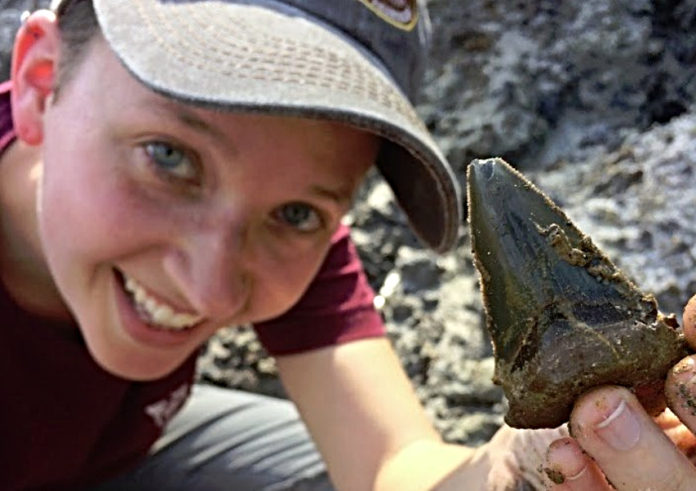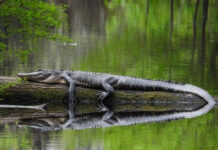The first ancient shark nursery in the U.S. was discovered in the Lowcountry. The location in Summerville, SC was home to prehistoric megasharks, and the discovery by scientists was confirmed with fossils that were found.
According to an article published on vice.com, paleontologists have recently discovered dozens of juvenile teeth in Summerville that belong to an extinct species of megatoothed shark called Carcharocles angustidens, who swam the seas long before the megalodon made its appearance.
The find, researched by a group from the College of Charleston’s Department of Geology, suggests that the fossil bed may have been a haven for megashark pups some 24 million years ago.
According to the article, shark nurseries have been found before in Panama and Chile, but the new discovery is the first shark nursery confirmed by fossils in North America as well as the first large population of juvenile C. angustidens that has been unearthed.
#fossilfriday
Addie Miller (CofC ’20) is presenting a poster with the playful title “Baby Megashark Do Do Do Do: An Oligocene Carcharocles angustidens nursery from South Carolina”. Check out the poster here! pic.twitter.com/F0D7tvsn5O— CofCNatHistory (@CofCNatHistory) October 16, 2020
A predecessor and close relative of the famous Megalodon, C. angustidens were a megashark that flourished during the Oligocene epoch, some 34 million to 23 million years ago. The shark could grow to lengths of nine meters (29 feet) from nose to tail fin, according to Addison Miller from the College of Charleston, who led the new research into the Lowcountry megashark finds.
The new finds also shed light on the evolutionary trajectories of megasharks over the past 30 million years or so, when these enormous predators were more common in Earth’s oceans.
Just like today’s great white sharks come to Port Royal Sound to give birth and let their young grow, their Lowcountry megashark predecessors did the same thing millions of years ago; in the same region.
The oceans are constantly changing and so are the shorelines. Summerville is about 33 miles from the ocean today, and the town was the ocean floor all those years ago.










